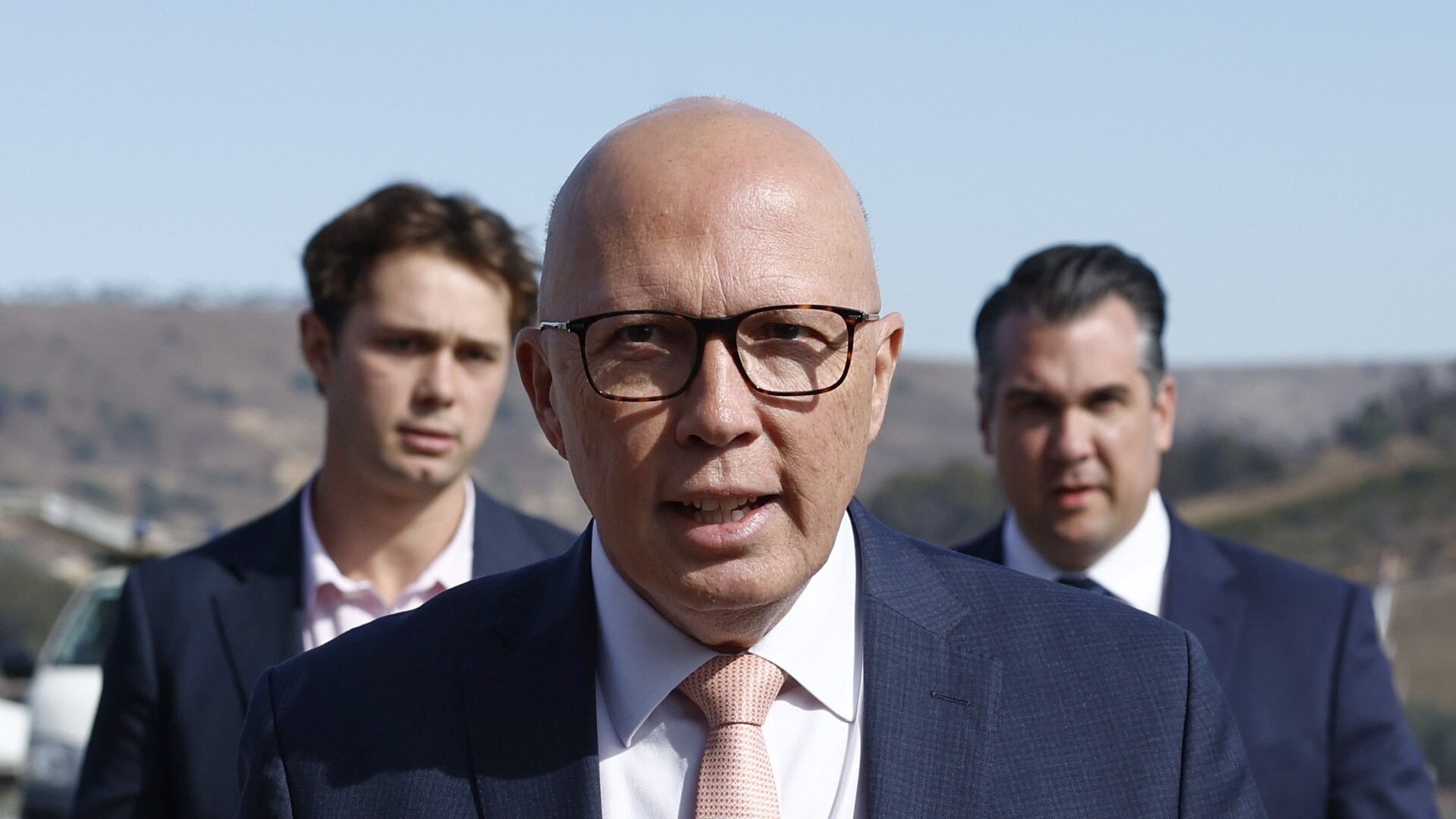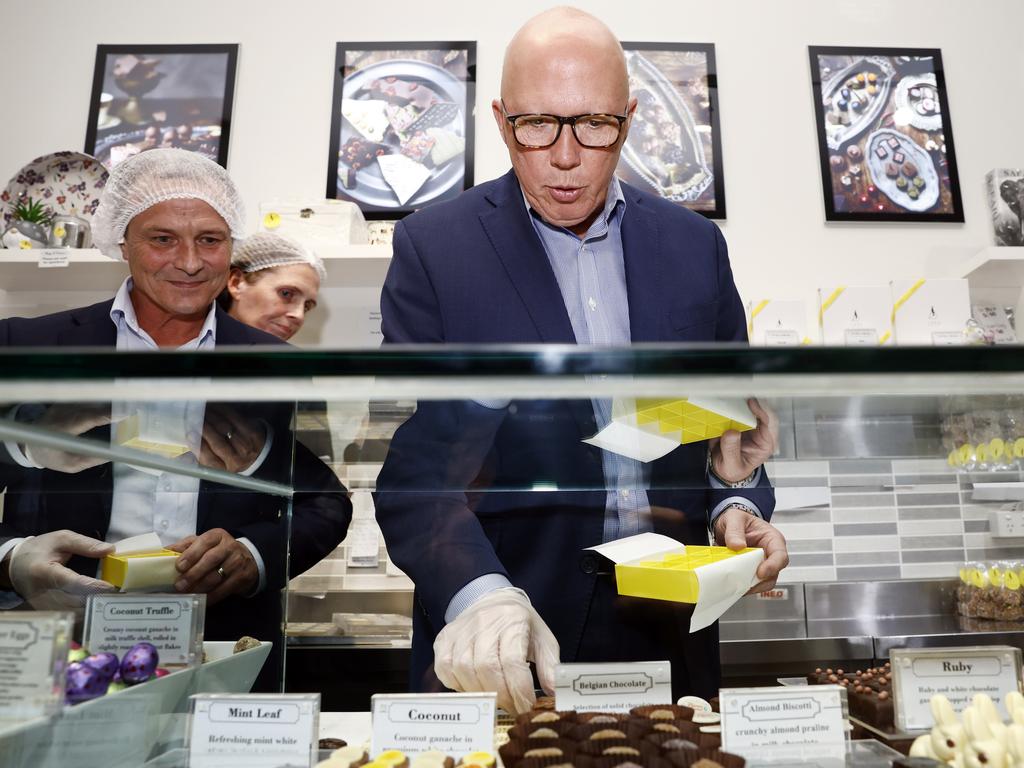
Until now neither major party had entertained opening this Pandora’s box for good reasons. Does anyone seriously think after five years the hundreds of thousands of beneficiaries, concentrated in marginal seats, facing an imminent collapse in their disposable income, won’t desperately vote for whichever party promises to extend the policy further? And why is it fair to restrict this tax benefit only to buyers of new rather than existing homes?

The forgone revenues will grow over time, making it harder for governments to lower income tax. Beneficiaries will borrow more than they otherwise would, pushing house prices up even more, in turn fuelling demand for more government intervention.
A close second is Labor’s promise to encourage hundreds of thousands of first home buyers to borrow 95 per cent of the purchase price. “This means a Sydneysider and first homebuyer can purchase a $1 million apartment with a $50,000 deposit with their loan guaranteed by the Albanese government,” Labor crows, extolling the wonders of being leveraged twenty times. Don’t worry, the ALP says, we’ll guarantee the other 15 per cent so you don’t have to pay lenders mortgage insurance.
That’s a great deal for the lenders, to be sure, who can confidently lend bigger sums to naive borrowers, safe in the knowledge that if the property market tanks and the borrower defaults, they’ll be bailed out, potentially by taxpayers if the loss were big enough.
Third place is a tie between the Coalition’s promised 12 month cut to fuel excise and the accompanying one-off tax rebate of up to $1200 to 85 per cent of taxpayers. Like all the other policies proposed in the campaign, they do nothing to encourage work, saving, innovation or higher productivity.
They cost an already heavily indebted federal government billions in revenue, to be made up for by further borrowing (mostly from foreigners); perhaps worst of all they feed into the increasingly entrenched lie that the “cost-of-living crisis” is temporary.
Newsflash: it will be just as bad if not worse in 12 months’ time. Prices will be up, wages will still be sluggish and courtesy of the demand boost about to be unleashed by whoever wins the election, housing will almost certainly be more expensive too.
Banning foreigners from buying existing homes for two years, as both parties have promised, won’t help either.

It’s not a cost-of-living crisis, it’s a cost-of-government crisis, and it’s a permanent one unless government permanently changes its ways. Living should be cheap, but not in a nation that’s become addicted to ever more tax and regulation.
The rest of the policy hit list is dominated by promises to boost housing supply which have close to zero chance of success. Labor’s already around 30,000 homes behind in vaunted plan to oversee the construction of 1.2 million new homes by 2029.
Governments are terrible at building homes, especially directly. Recall Jacinda Ardern’s promise to build 100,000 across the Tasman in 2018, of which only a few hundred were completed even years later.
If governments want more housing, they should scrap regulations that artificially increase the cost of building, such as the absurd energy efficiency standards in the new National Construction Code, and rezone land to encourage development. Only 0.2 per cent of Australia’s land is available for urban residential development, far less than comparable countries.
If the Coalition and Labor are determined to borrow and spend, how about bribing the states to slash their crushing stamp duties on home sales, which typically amount to tens of thousands of dollars in tax per transaction and lock up potential supply.
Most of all, they should drastically reduce immigration which has left Australia with one of the fastest growing populations in the developed world.
Net permanent and long-term arrivals to Australia over the year to February 2025 were almost 439,000, the second highest on record behind last year’s intake of 498,000, according to ABS data.

Halving that total would be the easiest leaver to pull to improve Australians’ quality of life and reduce upward pressure on house prices.
But that would require taking on big business, which naturally prefers a larger population, and even more dauntingly the universities, for whom foreign students are the key to sustaining their growing army of fat cat administrators.
As a former Liberal staffer from long ago, I’m sad to say the Coalition’s tax and housing policies are, for the moment, worse than Labor’s. Some vague promise to possibly “aspire” to end bracket creep – huge, unlegislated annual tax increases that fuel the spending spigot – years in the future doesn’t shift the dial.
At least the government has promised a permanent, however piddling, tax cut in lowering the lowest rate marginal rate to 14 per cent, which the opposition has bizarrely opposed.
Similarly, Labor’s planned $1000 standard tax deduction would flow to all taxpayers – not only those who need to be temporarily bribed – and would help reduce complexity in the tax system.
It certainly beats the Coalition’s plan to let small businesses claim a very non-standard $20,000 deduction on lunches and entertainment!
Sadly, the question thinking voters should be asking themselves in the lead up to this election is which major party will undermine Australia’s prosperity less.
The Coalition probably still has the edge given Labor’s slavish devotion to net zero, the most insidiously damaging tax of all.







In what must be the most depressing election campaign in memory, picking the worst economic policy on offer has become a genuine challenge. So far that prize goes to the Coalition for its promise to blow a huge hole in the income tax base by allowing first and new home buyers to deduct home loan interest against their income for five years.